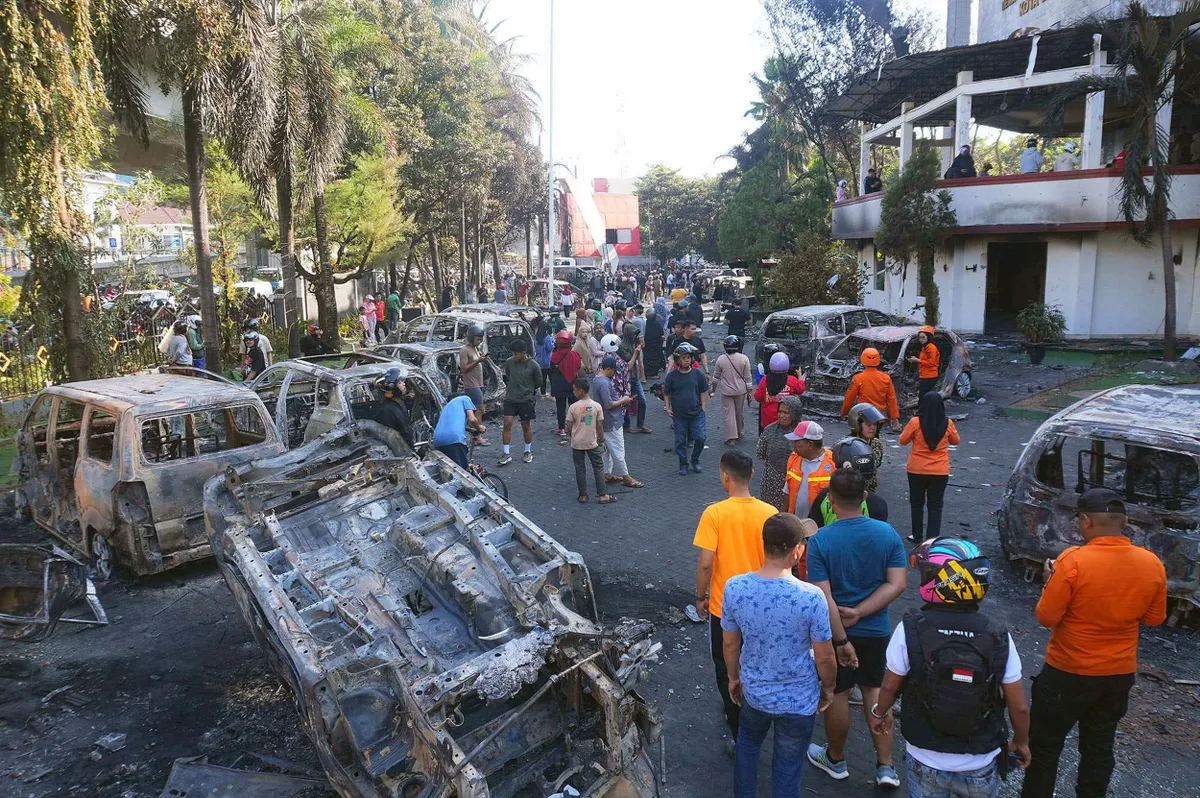In Indonesia, the government has recently passed a controversial tax hike, celebrating the decision as a step toward boosting state revenue and strengthening the economy. Inside the parliament building, lawmakers reportedly welcomed the new policy with enthusiasm, praising it as a “necessary reform” for national development.
However, outside the halls of power, the reality for ordinary Indonesians tells a different story. Many citizens are grappling with rising living costs, stagnant wages, and the increasing burden of taxes. For workers and low-income families, the tax increase has only deepened economic hardship, fueling widespread frustration and anger toward the government.

That anger reached a boiling point when furious protesters set fire to the Indonesian parliament building. The act of arson was both a symbolic and destructive display of public outrage, signaling how deeply resentment has spread among citizens who feel abandoned by leaders celebrating while people suffer.
The incident underscores the widening gap between government elites and the general population. As the government insists on celebrating financial reforms, the people continue to bear the brunt of economic struggles, making the parliament fire not just an act of destruction, but a desperate cry for justice.